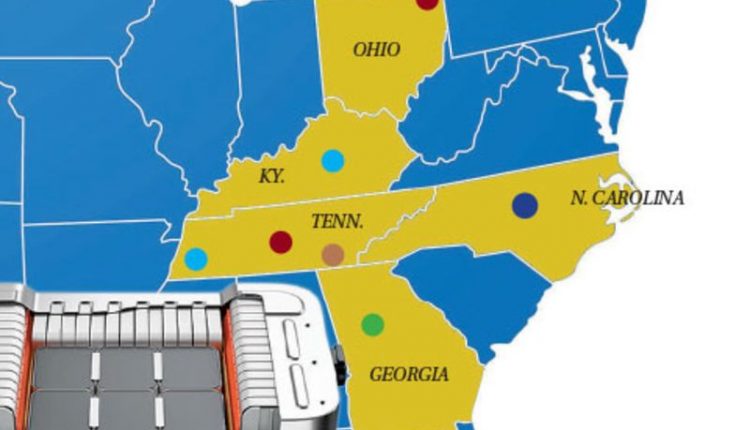In October, Toyota said it would invest $3.4 billion in the U.S. over the next nine years to develop and localize automotive battery production, including those for EVs that would be made locally instead of in Japan.
The U.S. investment is part of a previously announced $13.5 billion program globally by the Japanese automaker for battery development and production, which, unlike most other automakers, intends to keep battery production in-house instead of relying on large suppliers. Toyota has not yet laid out how it intends to spend the remaining $2.1 billion of its declared investment.
Stephanie Brinley, principal automotive analyst for the Americas with IHS Markit, said she couldn’t speculate on Toyota’s future plans for the North Carolina site beyond what the automaker had announced. However, she did note that battery packs for EVs are “very heavy, and automakers are unlikely to want to move them very far.”
This is not the first time Toyota has considered the Tar Heel State for a major investment. Former Toyota Motor North America CEO Jim Lentz told Automotive News in 2019 that Charlotte had been a finalist when the automaker was considering where it would move its headquarters, along with Atlanta. The company ultimately chose Plano, Texas, primarily because of a lack of available housing near Charlotte.
“The toughest part about that was housing — there just weren’t enough homes,” said Lentz, who retired in 2020. “I think our people would have been fighting over the same homes.”
Toyota Motor North America and its subsidiaries now employ about 4,350 workers in and around its Plano headquarters, a company spokesman said.


